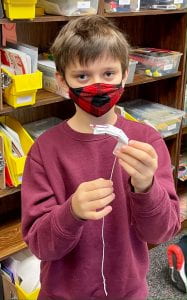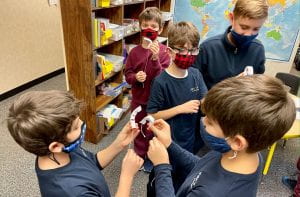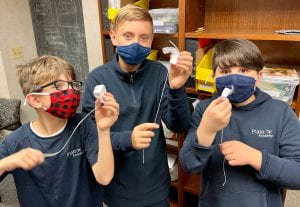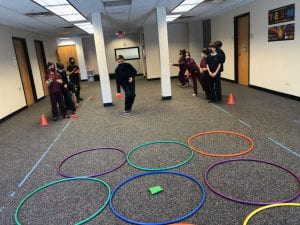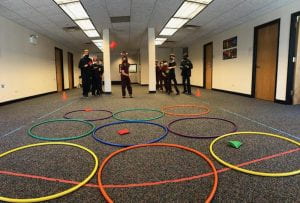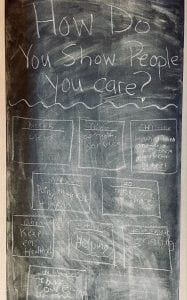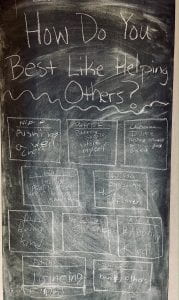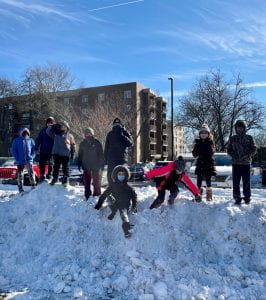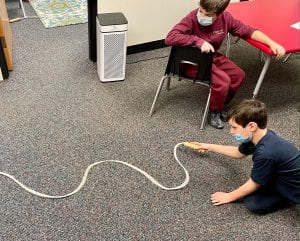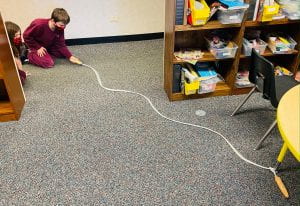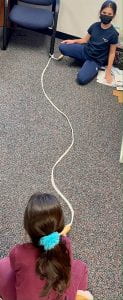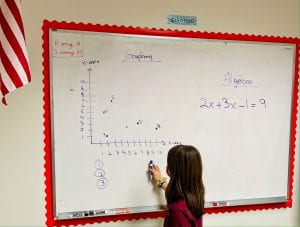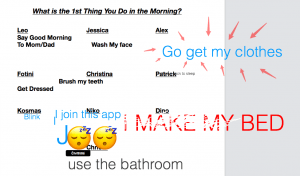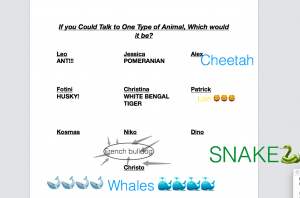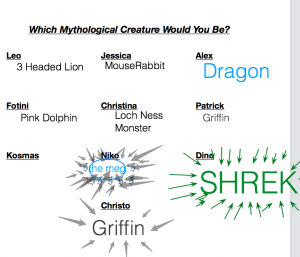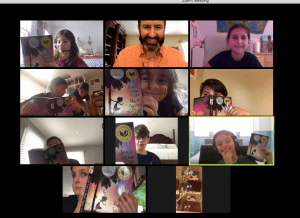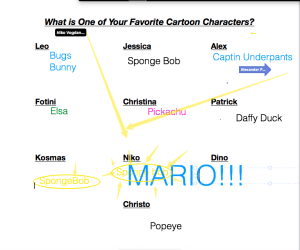In Reading and Language Arts, we experienced a difficult assimilation period for Ha and her family as they settle into life in Alabama. Our novel taught and challenged us on many topics and themes: comparing typical family week night to our own, siblings looking out for one another, self-defense vs hurting someone, being teased no matter what grade in school, growth of sibling relationships, racial intimidation, hiding at school to avoid fear and embarrassment, appreciating a friendly and helpful neighbor, and choosing a new faith and missing your former traditions. The quote of the week, provided by John Rushkin, was a perfect opportunity for us to study how the weather can affect our mood and why there really isn’t bad weather. “The River Cannot Go Back” by Kahlil Gibran, a legendary Lebanese author and poet, laid a foundation of anthropomorphic imagery about how a river only travels one direction and endures so many challenges all its ultimate journey to the sea. We reflected how the river is similar to our own lives, that we can only go forward and remind ourselves to truly cherish the journey. This week’s movie clip originated in the charming Disney classic, “Finding Nemo” and taught us about not only believing in ourselves, but that our individual efforts and gifts will always make our group that much stronger and richer in skill.
Chalkboard Questions of the Week
-What makes you feel brave?
-If you could give $100 to a charity, which would you choose?
-What makes you feel energized?
-What makes you so awesome?
-If you were in a play, what would you character be?


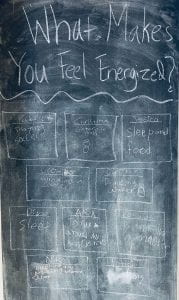
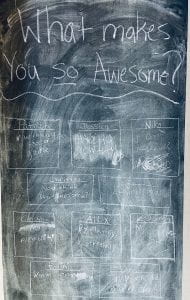
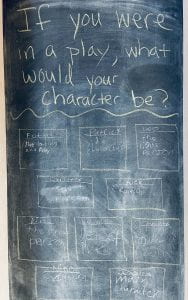
In Social Studies, we read and studied the powerful story of “Malala’s Magic Pencil” as she began her journey to bring education for all to not only her native Pakistan by children around the globe. We began digging deeper into our studies of The Middle East with three independent empire studies on The Assyrians, The Byzantines, and The Ottomans. These fascinating and important empires provided rich detailed for our informative journal writings. We learned that The Hagia Sofia is perfect culmination of 3 culturally significant empires and has now been transformed into a museum so all faiths and cultures can be represented. Our Data Talk focused on the Immigration to Greece (1920-2020). We had studied which nations were represented that immigrated to the US, so this was a fun comparision. This week’s Riddle is considered by many experts to the be the hardest logic puzzle ever. We learned a more valuable lesson, that using logic and patience can help you unlock the mysteries communicating in an unfamiliar language.
Map Location Current Total: 52 (countries or cities)
In Science and Math, we strengthened our Geometry skills by learning how to calculate the area of parallelogram and also learned the intricate and beautiful history of Islamic Geometric designs. Our class also dove into the complex world of PEMDAS (Order of Operations). We found out rather quickly that once you understand the rules of anything in Mathematics, it isn’t scary anymore. We tackled the world of measurments (Metric vs. Imperial) and how to convert from one to another as well as how measurement systems play such a large role in our lives. Math Mindset brought a unique and rather popular activity to our class; we studied 4 Quadrant Coordinates (Fast vs. Slow and Fun vs. Not Fun) and how to classify various modes of transportation. Our class begin their own classification quadrants and will reveal their final product next week. We explored why people have food allergies, how they affect our bodies and from where did they originate. Our class ventured into world of computers as we discovered what the first computers were like and how they evolved into the incredible hand-held devices that impact nearly every aspect of our lives. Finally, this week’s Science experiment allowed us to explore how the complexity of the human body is a wonderful template for the study and development of robots. We created our own robotic finger to have a great understanding of how our own hand works and why we are the most impressive machines on Earth.
We Create and Control Robots
